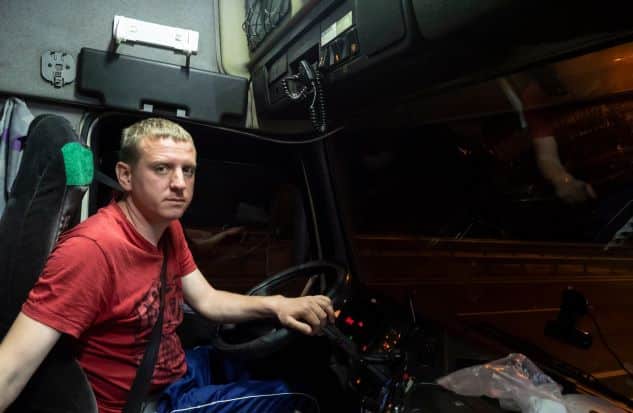Driving change: Oxford academic awarded £700k-plus for project to improve working lives in logistics.
Tuesday 4th Oct 2022, 4.28pm

Part of the Government’s research and knowledge exchange body, the Economic & Social Research Council, has today announced the hotly-contested award has gone to Dr Hopkins and team, which will allow the researchers to ‘make visible’ truck drivers’ lives and identify recruitment and retention problems – as the logistics sector faces an acute labour shortage.
Truck drivers are critical to today’s just-in-time economy. Nearly 80% of supermarket goods are transported by road. Only a year ago, national concern was voiced about a perceived shortage of drivers. And yet little is understood about their lives and the pressure faced by these intrinsically mobile workers.
Much of the current crisis [in the transport sector] exists because people – drivers – have been reduced to labour units of movement without understanding their complex mobile lives
Dr Debbie Hopkins
According to Dr Hopkins, ‘Much of the current crisis exists because people – drivers – have been reduced to labour units of movement without understanding their complex mobile lives.’
There has been an exodus of drivers from the sector, despite the perceived high wages, and a host of factors have been blamed. Working with sector partners in the logistics field, the study will follow the lives of individual drivers and explore the experiences of workers living away from home for protracted periods.
The research is funded via the ESRC Transforming Working Lives programme. The three-year project, Making Space for People in Truck Driving Work, will identify the changes needed to recruit and retain a demographically diverse workforce and, find pathways to implement actions to improve workers’ lives for the better.
Dr Hopkins’s award is one of seven announced today by ESRC, which is putting some £3.9 million investment into these new research projects, to improve the world of work for UK workers.
ESRC’s Interim Executive Chair, Professor Alison Park, said, ‘The world of work is changing rapidly. Understanding how and why it is changing, and how this affects workers’ lives, will help policymakers, businesses and employees to navigate key challenges, including how to help people to progress in their careers and how to enhance gender equality in the workplace. These seven new research projects will collaborate and coordinate with one another, enhancing the collective impact of ESRC’s investment.’
Each of the projects will start on 1 October 2022 and will run for three years. The projects will explore UK workers’ experiences of workplace power dynamics, and managing career transitions, with the goal of transforming them for the better.
Collaborators in Dr Hopkins’s project include Newcastle University, University of Huddersfield as well as industry partners from the public and private sector.
ESRC is part of UKRI, UK Research and Innovation, the Government-backed public body which directs research funding and is funded via the Department for Business, Energy and Industrial Strategy.

